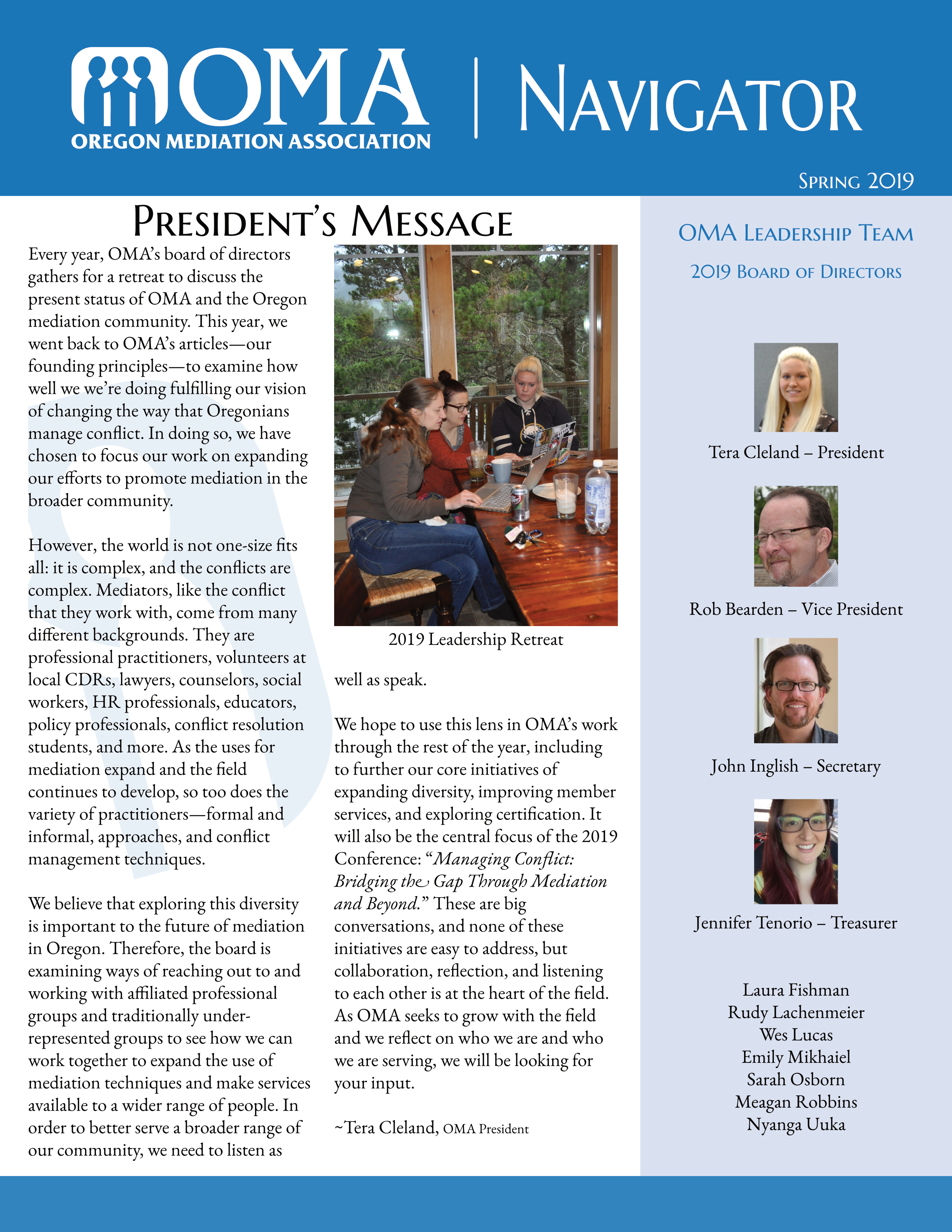 The Spring OMA Navigator is here!
The Spring OMA Navigator is here!
Thanks to all who contributed, and a big thanks to our tireless volunteer, Billy, who made it possible.
Read the latest edition online here.
Promoting collaborative and equity-informed conflict resolution.
by ormediate
 The Spring OMA Navigator is here!
The Spring OMA Navigator is here!
Thanks to all who contributed, and a big thanks to our tireless volunteer, Billy, who made it possible.
Read the latest edition online here.
by ormediate
How you put yourself to bed and what time you turn off the lights makes a huge impact on your mood, energy, health, and longevity. Yet, our culture stigmatizes sleep, glorifying those who can push through an all-nighter and dismissing those who prioritize sleep as lazy or unmotivated.
Are you getting less than seven hours of sleep most nights of the week? Are you a night owl who stays up into the wee hours of the night? Do you have a hard time getting to sleep or staying asleep all night? Do you feel foggy and sluggish when you wake in the morning? Would you like to feel bright, clear, and energized when you wake each day?
If you’ve answered yes to any of these questions, you may want to create the habit of Early to Bed.
Sleep is Essential
Humans are not like the owls, or cats, or bats that sleep in the day and are awake at night. We are physiologically programmed to do the opposite. This phenomenon has been understood for thousands of years and was recently validated by modern science.
Also in 2017, neuroscientist Matthew Walker authored, “Why We Sleep: Unlocking the Power of Sleep and Dreams” to explain the importance of sleep and convince us all to prioritize rest. “There does not seem to be one major organ within the body, or process within the brain, that isn’t optimally enhanced by sleep (and detrimentally impaired when we don’t get enough),” Walker writes.
The list of impairments caused by sleep deprivation (i.e. less than seven hours per night) is long and far-reaching. A few of them are illustrated in this infographic, and include: food cravings, lower immune function, increased cancer risk, high blood pressure, emotional instability, depression, anxiety, and irritability.
Whether you listen to the ancient sages, to your sweet grandma, or to the hard science, the truth about sleep is clear. Sleep is essential.
How to Go to Bed Early
Last month we talked about eating an Earlier Lighter Dinner. This is the habit of eating your last meal of the day by 6pm so you have time to completely digest your food before bedtime. The habit of an Earlier Lighter Dinner sets you up for the habit of Early to Bed because your body won’t be working on digesting food while you sleep and it can do what it supposed to be doing overnight: restoring, detoxifying, and resting.
If you live by your natural circadian rhythm, that means you go to bed – or at least start winding down – when the sun goes down. This is the time of day when your energy is naturally waning and getting you ready to rest. Knowing you need to get at least seven hours of sleep, count backwards from you waking time and you’ll find your bedtime. It’s probably around 10pm.
If you’ve had an Earlier, Lighter Dinner, you’ve already taken a step toward winding down for an early bedtime. Since you’re not eating late, you have time in the evening to:
All of these activities send the signal that it is time to get quiet and go to sleep. They will teach your body and mind how to go to bed early.
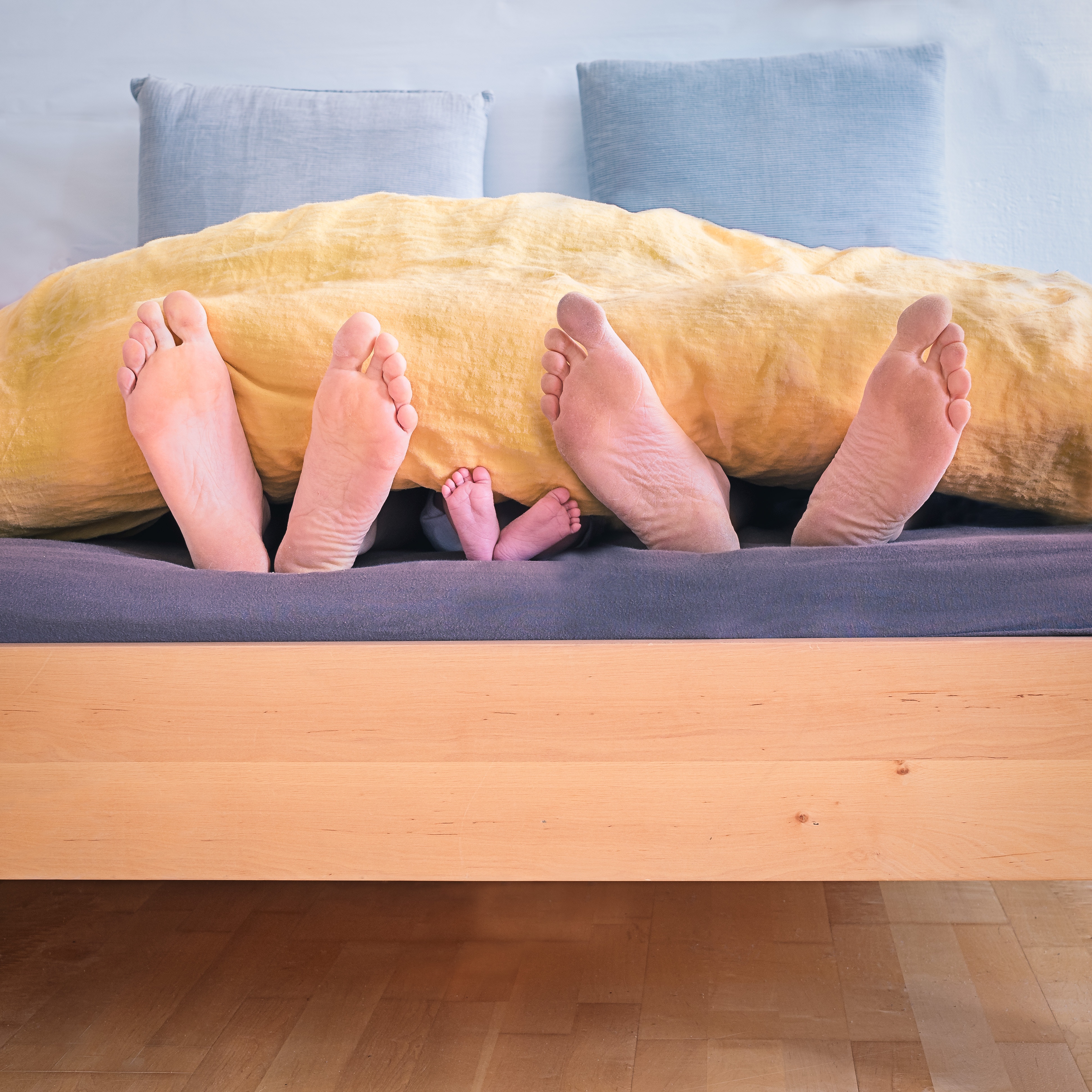
Knowing and Doing are Different Things
When we know the impact of sleep deprivation and we know that we are naturally wired to sleep at least seven hours a night, Early to Bed is a no-brainer. But the culture we live in, and the evening habits most of us have, don’t support good sleep.
Adopting the habit of Early to Bed will have short and long-term impacts on your life. You’ll lower your risk for disease, and you’ll be less prone to accidents. Being well-rested means you’ll wake up with more energy and have better focus to do your work each day. You’ll be more emotionally stable, which can lead to gains in your work and personal relationships, confidence, and self-esteem.
What will be your simple step toward living in sync with nature and adopting the habit of Early to Bed?
About the Author
Kirstin Pinit teaches the art of self-care through creative, engaging, and practical habit-change programs. She is a certified coach and yoga teacher and consults with cities, communities, companies, and groups on behavior-change programs and strategies. Learn more about her work at www.kirstinpinit.com.
by ormediate
OMA is looking for a few good men and women to help fill vital volunteer roles. Commitments and projects vary, so no matter your interests, there is some way to get involved!
OMA’s Member Services Committee has 4 seats to fill. These are volunteer positions that meet four times a year to discuss member benefits, and plan opportunities for member engagement with outside communities.
Specifically, the Committee is looking for members with any of the following:
Interested individuals should contact the office no later than March 28th and the Committee Chair will contact you to learn more about your interest.
OMA’s Finance Committee is looking for members to help brainstorm and evaluate how to best maintain and utilize our financial resources. How do we manage and disburse scholarship funds? How do we best use OMA’s growing reserves? Join the conversation and help us determine a strong financial path forward for OMA!
Tech Gurus Wanted!
We are looking for one or two volunteers to help provide support in two vital tech roles in operations and information management. If you would like to help maintain the WordPress platform for OMA’s website or know about database management, we want to hear from you! Commitment is sporadic, approximately 2-4 hours per month.
by ormediate
This month The Self-Care Series will help you feel more energetic and light by getting in touch with the rhythm of nature and experimenting with the habit of eating an Earlier, Lighter Dinner. Adopting this lifestyle habit can go a long way toward improving your capacity to do your work and enjoy your life.
Most Americans tend to eat large heavy dinners. Busy days often include a quick lunch eaten on the go or while working and then a bigger, heavier evening meal after the day is done. Dinnertime is part of the social fabric of our culture. We connect with friends and loved ones over food and drink. We indulge in the name of celebrating a big win or to soothe a challenge.
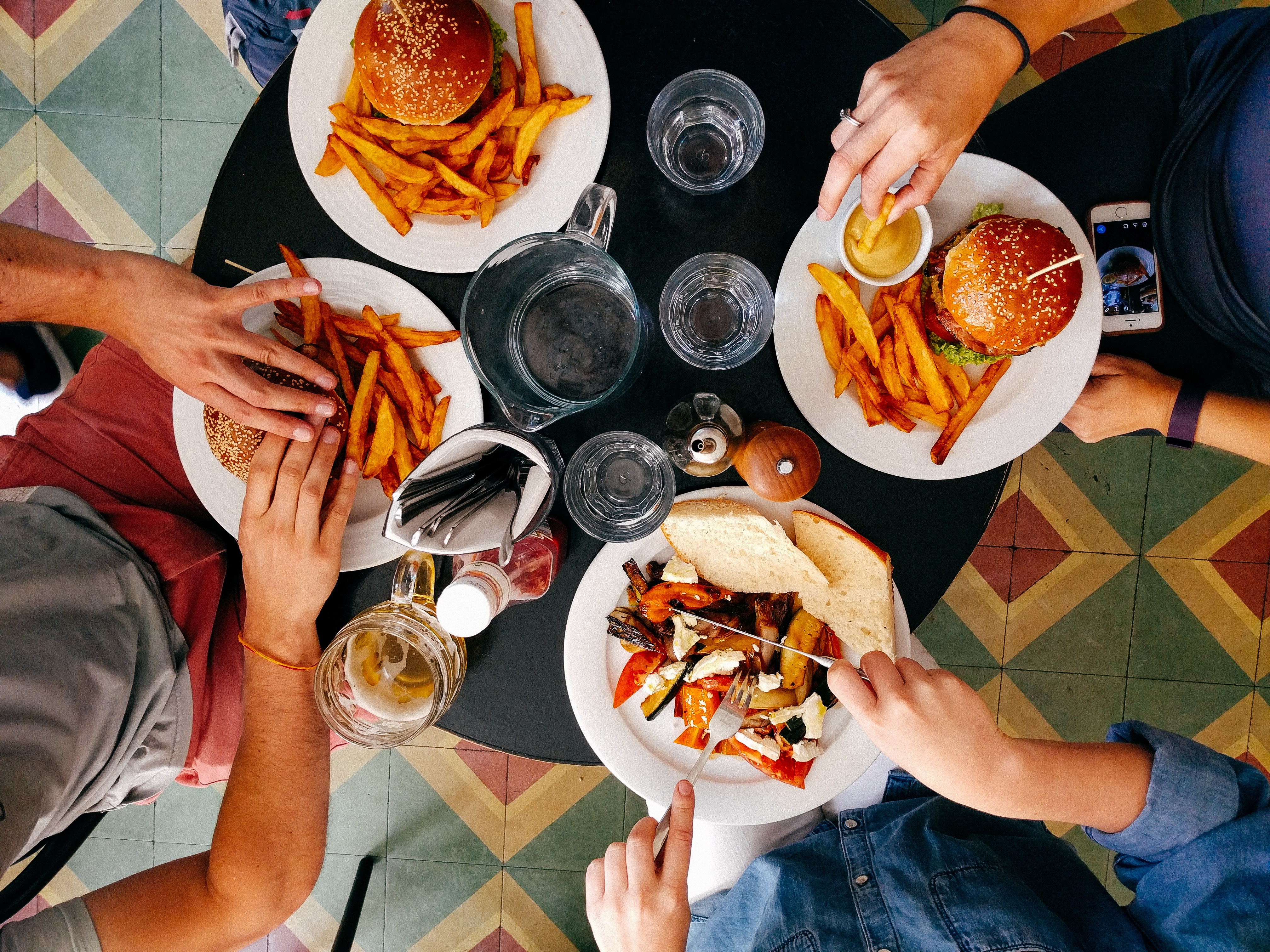
The problem with this cultural norm is that it is hard on your body and mind!
Eating late in the evening puts a heavy load on your whole system. Instead of resting and rejuvenating while you sleep, the body is still digesting your big meal. Instead of detoxing and removing waste, the whole system is clogged with more material than it can handle.
A heavier, later dinner lifestyle contributes to digestive and sleep issues, low energy, and foggy thinking. It can result in added weight, stiff joints, memory decline, and degeneration of vision and hearing (often considered the inevitable effects of aging).
If you want to feel light and clear in body and mind, eating an earlier, lighter dinner can help.
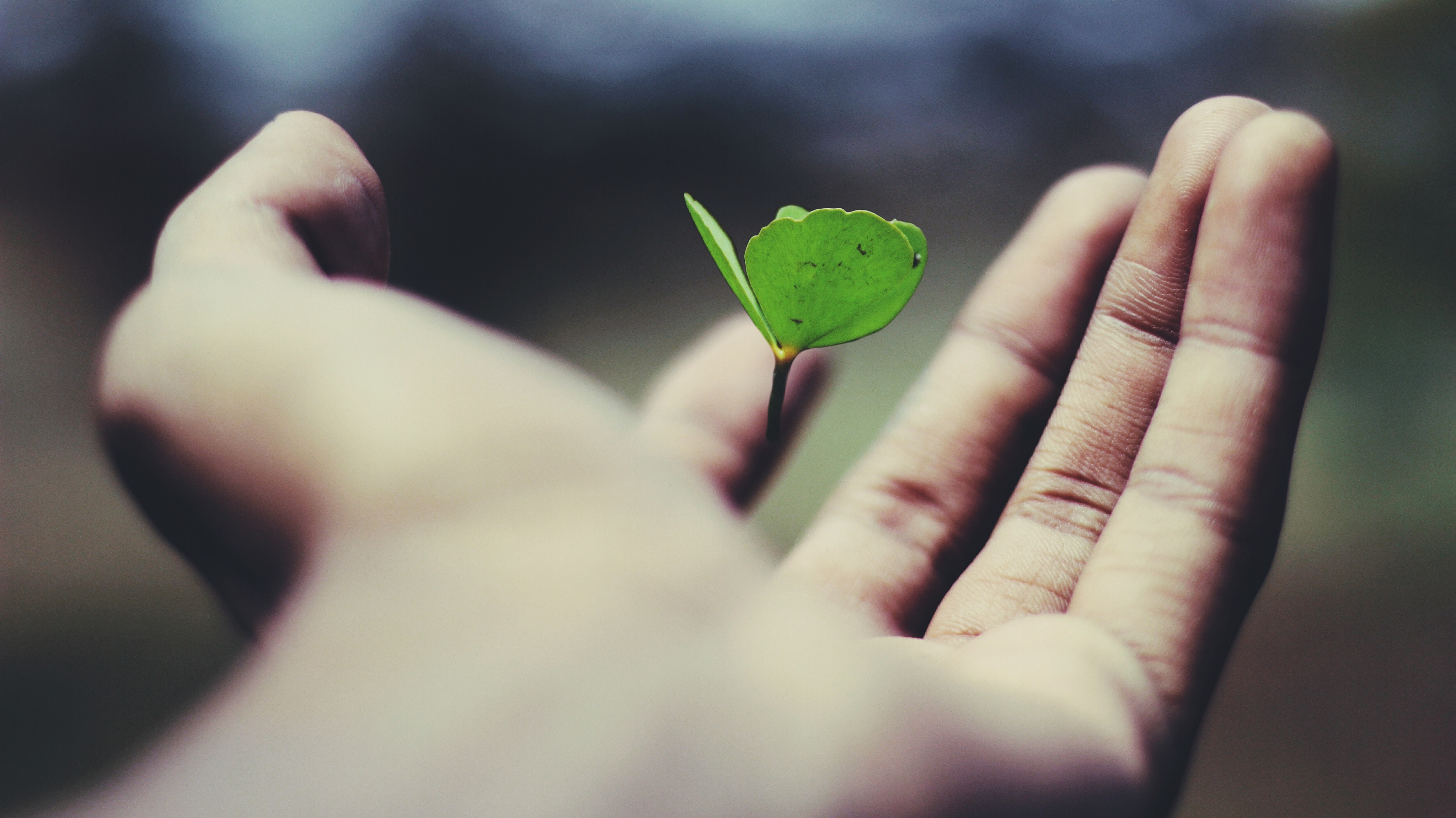 Living on Mother Nature’s Schedule
Living on Mother Nature’s ScheduleHumans are physiologically designed to be active in the daytime and sleep at night. This natural phenomena has been proven by nobel laureates whose research on circadian rhythm explains the molecular processes that sustain life. Ayurveda is India’s “science of life” and provides simple, practical guidelines for living in sync with Mother Nature’s natural rhythms. This ancient wisdom is aligned with the scientific understanding of circadian rhythm.
Ayurveda’s explanation of our internal clock helps us understand that the daytime hours are best for physical labor and exercise. It’s when our digestive “fire” is strongest and our energy is more mental and creative. The nighttime hours are when the body is settling down and preparing for sleep. During sleep, our internal organs are resting and repairing.
Our bodies are remarkable machines that can continue to function even when we live against the body’s internal clock. We fuel up on food and caffeine, catch the second wind, and keep producing long into the night. We can do this occasionally – and sometimes we have to – but over time, this rhythm is not sustainable.
A life of working against the clock is associated with the increasing occurrence of lifestyle diseases that develop over years of poor nutrition, disrupted sleep, and lack of physical activity. Choosing to live in sync with your biological clock is a simple way to feel better and avoid debilitating and hard-to-cure diseases that diminish your quality of life and shorten your lifespan.
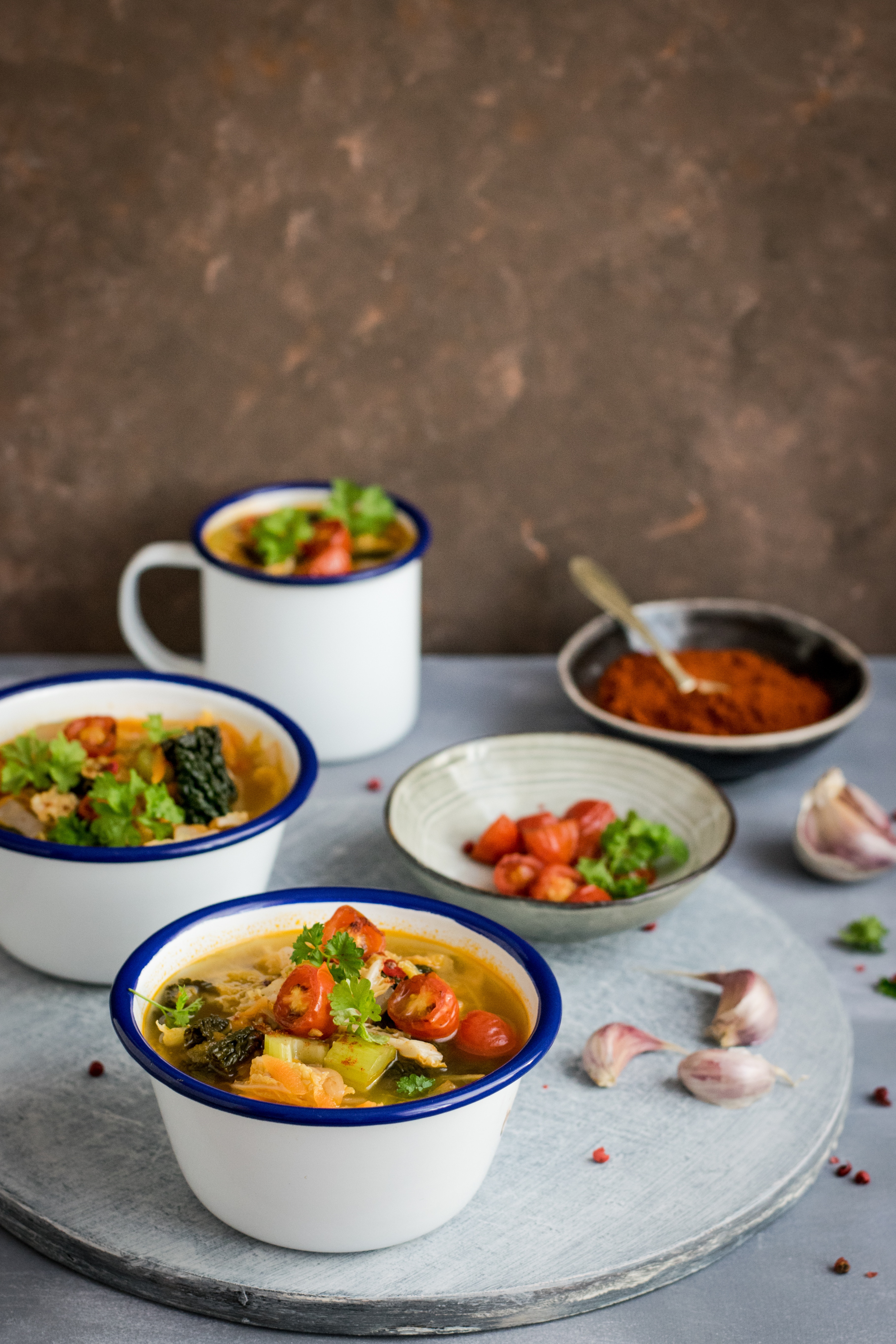 Earlier, Lighter Dinner Basics
Earlier, Lighter Dinner BasicsWhen you eat dinner early, you digest your food before you go to bed so your body can rest, restore, and reset overnight. Here’s how:
Adopting the habit of an Earlier, Lighter Dinner has many benefits. You’ll free up your evening for other nourishing activities like connecting with friends and family. You’ll make it easier for your body to rest and restore itself overnight. You’ll set yourself up to be clear and energetic the next morning. You’ll keep your body lighter and will experience fewer aches and pains as you age.
What will be your simple step toward living in sync with nature and eating an early, light dinner?
Kirstin Pinit teaches the art of self-care through creative, engaging, and practical habit-change programs. She is a certified coach and yoga teacher and consults with cities, communities, companies, and groups on behavior-change programs and strategies. Learn more about her work at www.kirstinpinit.com.
by ormediate
Anita Edwards Engiles passed on Tuesday, February 26 in Portland, Oregon after a year long battle against leukemia. Anita spent most of her professional life working as a mediator, helping to broker equitable solutions to difficult problems for parties who otherwise treat each other as adversaries. Perceived to have infinite energy, Anita also dedicated time to: nurturing her lush backyard garden, traveling (for work, vacation and family visits), building community, fighting for justice and engaging in deep conversation.
If you have a remembrance or photos of Anita that you would like to share, or would like to send cards or flowers to the family, please let us know at OMA@ORMediation.org.
There will be a celebration of life for Anita on Saturday, April 20th. All are friends from around Oregon are welcome.
Date: Saturday, April 20th
Location:Unitarian-Universalist Church, 1685 W. 13th (corner of 13th and Chambers), Eugene, OR
Doors open at 1:00 pm.
The formal remembrances will begin at 1:30 pm, with coffee and cake to follow, and end by 4:00pm.
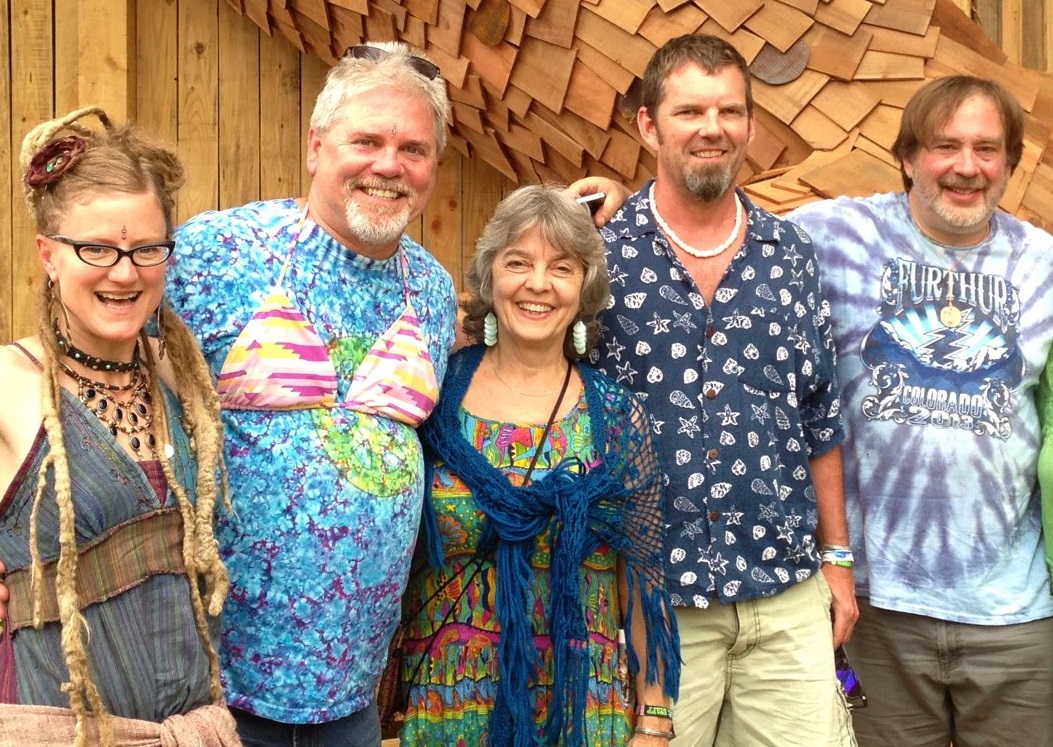 Remembrances of Anita
Remembrances of AnitaCDR (the Center for Dialogue and Resolution, in Eugene, Oregon) will be celebrating the 40th anniversary of its founding in two years. It was named Community Mediation Services for most of that time, but for its first year or two it was called Community Boards of Eugene. And that’s where Anita’s connection to this agency first began. As the story is told, Anita had recently graduated from law school at the University of Oregon. It was late 70’s and early 80’s at the time. The Iran hostage crisis was going on and Ronald Reagan had just been elected President. Anita had become disillusioned with the law, and rather than take the bar exam, she instead joined up with a number of her friends from law school to talk about mediation. The Community Boards of San Francisco had formed in 1976 and was having a big impact using a special model of mediation that they had developed for helping neighbors to resolve conflicts. These young law graduates from Eugene connected with the founders of the San Francisco agency and made arrangements to be trained in this special model. A short time later, they all started a small non-profit in Eugene and began offering mediation and conflict resolution training to the community, and we have been doing that ever since. Through the years, many volunteers have come and gone, but Anita was the only volunteer to stay connected with the agency for that entire time! She mediated countless cases for CDR, trained hundreds of new mediators, served on the CDR board of directors, donated to CDR every year, and mentored an untold number of volunteers and staff members at this agency that she loved so much.
When I first met her about a dozen years ago I was immediately struck by her boundless energy and enthusiasm for life, coupled with a serenity that could put anyone at ease. She was always so grounded. Another friend, Anne Bonner, said of her, “She had stove pipe legs that drove right into the earth, and deep and wide-open eyes, ever present and delighted in whatever moment she was anchored in.” She was such a generous person, with her time, her garden bounty, her many gifts. She ended almost every letter or email with “Hugs, Anita.” She was always the very last person to leave any party or fundraising event we held, partly because she loved connecting with her friends, but also because she wanted to help clean up!
She didn’t look like a hippy, at least when I knew her, but she was a hippy at heart. She was the consummate recycler and her goal every week was to not have any trash in her trash bin, and she often succeeded. She also loved the Oregon Country Fair. When most 70 year olds are thinking about camping, they are thinking about a well-stocked cabana or perhaps an air-conditioned RV and going someplace quiet and peaceful. But not Anita. Every year at the country fair she would camp in the Community Village, the heart of where hippy culture lives on in the PNW. She slept on the ground in a little tent, amidst a plethora of music and drums and fire dances and merry-making. But even while enjoying herself at the fair, she was still volunteering. She was a founding member of CeDaR, which is CDR’s pseudonym for the mediation team that provides free mediation to any of the 16,000 volunteers that put on the fair. The attached photo shows her and a few other CeDaR members in front of our mediation and empathy listening booth in the Dragon Plaza a few years back. And as usual, Anita is at the center, joyous as ever.
Dear OMA,
Thank you for honoring such a unique spirit who, in her own beautiful way, shaped and reflected the heart of Oregon’s unique community of mediators. I join countless others who were touched, and forever changed, by Anita. Although I moved from Portland to St. Paul, MN more than 20 years ago, my own heart has never left the PNW and I continue to be influenced even today by her way of being and the qualities of the community Anita so deeply influenced.
Anita was, and will always remain, an embodiment of why the Oregon mediation community is so special. Her presence was at the same time in-the-moment and timeless. She was humble and yet transcendent. She would walk through the fire with anyone, while always carrying a sparkle of joy and optimism about human capacity and connection. Like so many others, I always felt a little more grounded and hopeful at the sign of her arrival in her old yellow VW beetle.
My hope is that her spirit will live on in the community she helped nourish. In that way, those who follow can continue to be sustained by the deep and clear values and presence she so fully embodied.
Ken Fox
Former OMA President and Forever Oregonian
Conflict is a natural part of life. Managed intentionally, conflict can positively transform lives and relationships. Mediators are trained to understand the source of conflicts and identify a path away from adversarial positions toward positive growth and change. Mediators create a safe space to have difficult conversations. The Oregon Mediation Association works to build greater awareness of mediation as a useful conflict management tool.
OMA is a network of practitioners and supporters who are committed to the development, support and advocacy of mediation in Oregon.
OMA's mission is to help Oregonians transform the way they confront and resolve conflict in their personal lives and in their communities.
Main: 503-208-4309
OMA@ORMediation.org
620 SW 5th Ave Ste 900
Portland, OR 97204